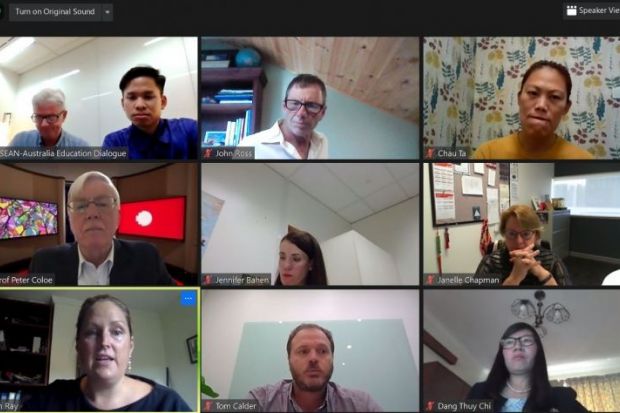The pandemic has helped accelerate a step change in Vietnamese education, fostering the expansion of online learning in South-east Asia’s third most populous country.
A Ministry of Education and Training circular issued in October, which authorises the online delivery of joint qualifications, completes a two-year policy drive pursued with Australia’s assistance.
While foreign officials are still clarifying approval processes, the new regulation should allow overseas higher education institutes to deliver online qualifications in conjunction with local partners. Five pilot programmes involving Vietnamese and Australian institutions have already been established.
Jen Bahen, education and science counsellor with Australia’s embassy in Vietnam, said the policy shift was likely to spawn blended approaches that complemented existing ones rather than supplanting campus-based teaching.
“There is an eagerness to return to some sort of face-to-face training,” she told an Asean-Australia Education Dialogue webinar. “[But] it’s a game changer in that education will probably change forever.”
Vietnam is one of Australia’s biggest neighbours with a burgeoning middle class and a thriving economy still growing despite the pandemic. But many Vietnamese struggle to afford overseas tuition fees, and locally trained university graduates – like those in neighbouring countries – experience relatively high unemployment.
While joint online courses could help solve both problems, the country has been “quite reluctant to take on online training”, said RMIT Vietnam chairman Peter Coloe.
Dang Thuy Chi, first secretary for education with Vietnam’s embassy in Canberra, cited patchy internet access and computer skills in the country’s “remote” areas. “It’s taken quite a long time to change the mindset of our leaders about online learning,” she told the forum.
But the new rules would “lay the policy ground” for Vietnam to cooperate with foreign partners, particularly Australia, on online and blended approaches. “This is a very good model for Australian and Vietnamese institutions in the future.”
Despite bordering the country where the coronavirus is believed to have originated, Vietnam has been a Covid success story, recording fewer cases even than New Zealand, according to World Health Organization figures. Nevertheless, the crisis has necessitated considerable uptake of online education. Ms Chi said that while the bulk of the country’s 250 higher education institutions had resumed on-campus operations by early May, some 45 per cent of university classes had been delivered through online or blended modes.
Chau Ta, Ho Chi Minh-based president of business lobby group AustCham Asean, said it was “too early to tell” whether local employers would embrace online-trained graduates. “A few barriers need to be overcome, but it’s a positive move in terms of alternative ways of education.”
Janelle Chapman, executive director of TAFE Queensland International, stressed the need for properly trained instructors. “Great” classroom teachers could not necessarily transplant their skills to a virtual environment, she warned.
“Having to keep people engaged on the screen, in different time zones, is a difficult thing to do. We’ve invested a lot of time in training our teachers to be able to deliver well in a virtual mode, and contextualise their resources.”
Professor Coloe said the new arrangements would give Vietnam access to “courseware” developed all around the world. “In the past people would probably do a couple of years in Vietnam and then go overseas [for] higher skills. I see online blended activities creating a new opportunity in education that will enable Vietnam to take a quantum leap forward.”
Register to continue
Why register?
- Registration is free and only takes a moment
- Once registered, you can read 3 articles a month
- Sign up for our newsletter
Subscribe
Or subscribe for unlimited access to:
- Unlimited access to news, views, insights & reviews
- Digital editions
- Digital access to THE’s university and college rankings analysis
Already registered or a current subscriber?









